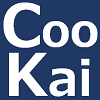一貫性 | WEBマーケティング用語
一貫性
WEBサイトにおける最重要の要素は「一貫性」です。クローラーは、サイト単位およびページ単位の一貫性を重視します。

ローカルでランク付けする方法を決定する際の重要な要素は、引用間の引用とNAPの一貫性の量と大きさです。ローカルの検索エンジン最適化の重要な要素であり、他の検索エンジンと一緒にGoogleの企業がローカルの意図検索のために示す影響に影響します。個人はしばしばウェブ上のNAP情報の状況を引用と呼ぶ。あなたのNAP情報が、YelpやAngie’s List、論文記事、ブログ記事などのディレクトリサイトに表示されるときの引用です。Moz Local Search Position Factorsレポートは、ローカルSEOのランキング要素の必要性を説明する業界標準の調査です。
上位6つの基礎的なポジションファクターから3つは、見積額、品質、および一貫性に関連しています。世界中の企業の企業情報を収集、検証、配布する情報ビジネスを見つけることができます。企業が開始されると、その情報は最終的にこの企業の情報エコシステムに到達します。多くのサプライヤは、この情報をリードとして、または他のプログラムへの情報フィードとして販売して、収益を上げています。InfoGroupはこの種の企業の例であり、実際にはビジネスリードを直接購入することができます。彼らは会社情報のためにウェブを精査し、データベースに追加します。
このすべての結果は、ウェブサイトや情報提供者が相互に情報を提供し、その情報がオフラインと一緒に拡散する企業情報エコシステムです。このビジネス情報環境は、あなたが会社を立ち上げるたびに、テレマーケティングコール、カタツムリの募集などを受ける理由です。また、Yelp、Google+、YellowPages.comなどのサイトで、会社のデータがリストに登録されていない場合でも、会社のデータが検索されることがあります。何百万もの企業のビジネス情報を個人的に見直す代わりに、プログラムで処理できる情報項目を使用してランキングを決定します。Googleは、ローカルアウトカムのランク付け方法を特定する際に、インターネットで企業名、住所、電話番号、WebサイトのURLなどのデータを検索します。その後、その情報を、主な情報会社、おそらく郵便局の記録、州の会社の書類、電話記録などの他の情報源と比較します。
The most important element on the WEB site is “consistency”. The crawler places emphasis on consistency between site and page.
An important factor in deciding how you rank locally is the amount and caliber of citations and NAP uniformity across your citations. It’s crucial factor in local Search engine optimization and influences which firms Google along with other search engines show for local intention searches. Individuals often refer to situations of NAP information around the web as citations. A quotation is when your NAP information shows up on directory sites like Yelp or Angie’s List, paper articles, blogs posts, etc. Moz Local Search Position Factors report is an industry standard study that explains the need for ranking factors for local SEO.
Out from the top 6 Foundational Position Factors, 3 are related to quotation amount, quality, and uniformity. You can find information businesses that gather, verify, and distribute company information for businesses around the world. When a company is started, its information finally finds its way into this company information ecosystem. A lot of suppliers earn money by selling this information as leads or as an information feed to other programs. InfoGroup is an example of this kind of company and you may actually buy business leads straight from them. They scour the web for company information and add it to their databases.
The result of all this is just a company information ecosystem, where web sites and information suppliers are feeding off one another info and that info gets spread around, both on along with offline. This business information environment is just why you get telemarketing calls, snail mail solicitations, etc, whenever you begin a company. It is also why your company data can often be found on sites like Yelp, Google+, along with YellowPages.com even when nobody in your business created a list on these sites. In lieu of having to personally review business info for millions of businesses, Google uses information items it may process programmatically to determine your rankings. When identifying how you rank in local outcomes, Google scans the internet for mentions of one’s business name, address, telephone number, web site URL, and many other data items. It then compares that info to other information sources, including the main information companies along with possibly even post office records, state company filings, and phone records.
